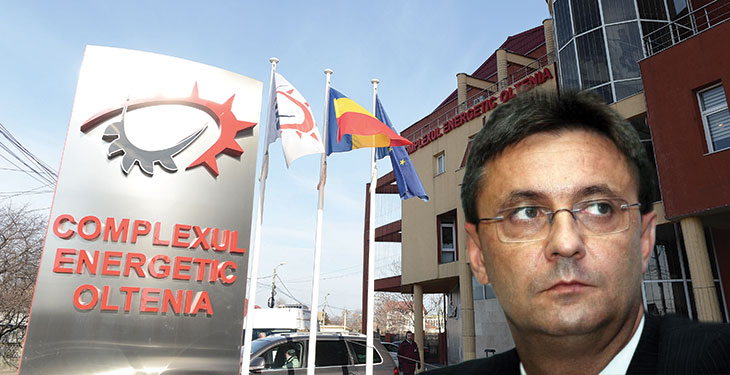Romania needs a plan for the total elimination of coal from energy sources, a plan to be approved by law, as happened in Germany, said on Tuesday, Daniel Burlan, general manager of the Oltenia Energy Complex, during the conference “Decarbonization: how fast, in which direction?”, organized by Energynomics.
He explained why we can’t give up coal immediately.
“It is possible that in 2050 we will have a safe, competitive and decarbonised energy system, but I think that at least for the next ten years, if not more, we need this fuel, the coal energy producer,” the company official said.
In his opinion, imports are not a solution to supplement the amount of energy produced by coal, as neighboring countries also need this energy.
CE Oltenia currently has 4 coal-fired power plants (lignite), with 12 energy groups, an installed capacity of 3,570 MW, an estimated production of 10 TWh in 2021 and provides thermal energy for the municipal area of Craiova.
The restructuring program was notified on December 4 in Brussels and involves the structural change of energy production from a single source, lignite, multi-source, energy mix: gas, renewables, coal. The plan provides for investments in new gas capacities, photovoltaic parks and a micro-hydropower plant, Burlan also said.
“Gas power plants will mean 1,325 MW, of which 850 MW in Işalniţa and 475 MW in Turceni, we have feasibility studies and technical files submitted to the Ministry of Energy in order to access the Modernization Fund and were requested in the feasibility studies, as and in the requirement of the study project of these capacities to be prepared to introduce at least 30% hydrogen. The photovoltaic parks will be in 8 perimeters, in total 735 MW, and the micro hydropower plant, of 10 MW, in Turceni,” added the head of CE Oltenia.
As these new capacities are put into operation, those on coal will be shut down, so from 2070 MW, about 1,450 MW of coal will remain in 2025.
“I think it is an ambitious plan that must be supported by the Romanian state. As stated by the representatives of the Romanian state and in the last discussion we had with the European Commission, there is the intention to set up a national commission with several stakeholders, non-governmental organizations, the economic environment and so on, and this commission will analyze and draw up a plan to close the coal capacity in the next period,” Burlan said.
According to him, all EU member states have these plans. Germany has a deadline in 2038, and Poland – in 2040.
“I’m coming back to Germany, because I also want criticizers to understand – those who criticize the fact that we don’t close the coal capacity immediately – what that plan to close capacity in Germany means. They get a lot of money for that. Companies like RWE or EPH get 4.35 billion in compensation, 4.8 billion in staff wages and another 40 billion in structural aid. Yes, this plan to decarbonise Germany has been approved by law, and I think that’s what Romania should do. This Commission should come with a draft law. We need this law,” stressed the representative of CE Oltenia, according to Agerpres.
With regard to the restructuring plan, he said that the EC had expressed some concerns and had begun an investigation into some aspects of the plan, which were structured in four chapters.
“Here we are talking about the adequacy of state aid, where the EC says that ‘you still have shareholders, maybe they can also contribute; we see why it does not contribute’, to justify why the own contribution is of 42% plus and is not of 50%, the restoration of the viability at the end of the period of implementation of the plan – we showed that at the end of the plan the company will have profit and no longer need state intervention, and in terms of compensatory measures, we are trying to attract other investors in these new projects, “Burlan said.
He expressed his hope that, following the analysis and the answers sent by the Romanian state, the EC will give its approval.
“Once again, I emphasize that Romania needs a plan to eliminate coal, to phase-out coal, as all other countries have, and we need funding, capacity reserves, strategic capacity… so these capacities must be kept as a strategic ones for Romania,” concluded Burlan.
